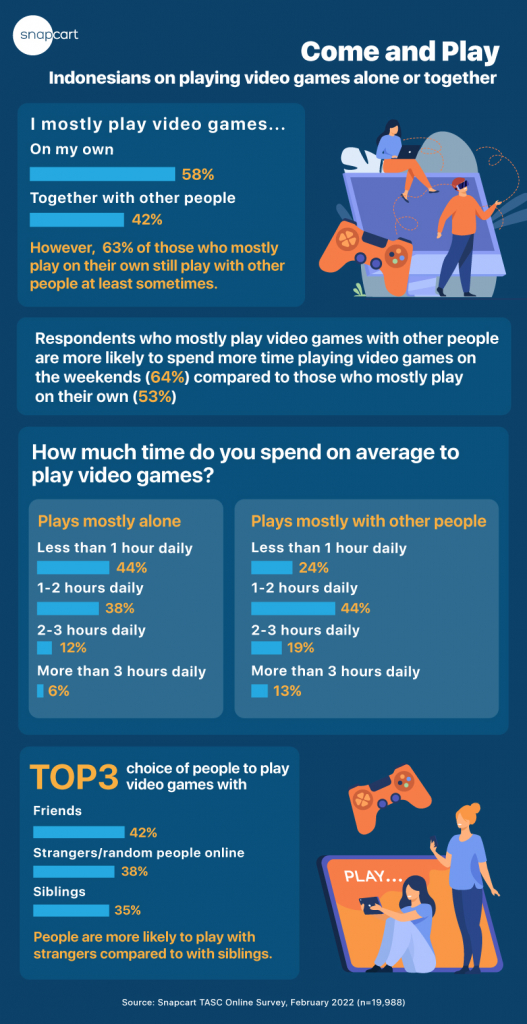According to our previous study, at least 85% respondents played, or have routinely played games. From the simplest Wordle to more complicated, competitive fares such as DotA and Valorant, variations of game are now wide enough to cater the most hardcore gamers to even the most casual ones.
One of the factors that might affect how widespread the adoption of gaming is through the act of gaming as a social activity – more specifically, how social gaming is now becoming more and more common. Faster internet connections as well as phone based gaming further supported this. In 2003, at least a quarter of the players of Everquest – one of the earliest online games in the market, said that their favorite part of the game is connecting with other players[1]. Now, with even more varieties of games that can be played together with other people, both offline and online, we look at how it affects gaming preferences of Indonesians.

Although there are slightly more people that mostly play games on their own at 58%, 63% of them answered that they still play games with other people at least sometimes. If we look at average playing time between people who mostly play alone compared to people who mostly play with other people, we can see that people who mostly play with other people have a slightly higher average daily playing time – something that might be beneficial for some games, which can also account for why the number of games that have multiplayer capabilities are increasing [2].
Also interesting to note that although playing with friends is still the most popular, people are slightly more likely to play with strangers, assumed to be through the internet, compared to playing with siblings. Does this have anything to do with the anonymity involved in online gaming[3]?
From a glance, it seems that although in general gaming as a social activity is experiencing a rise, most of our respondents still prefer to play on their own. Gaming as a social activity might partly remain an option rather than the main course for our respondents.
Sources:
[1] BBC – How online gaming has become a social lifeline
[2] Forbes – Are Video Games Becoming Too Focused On Multiplayer?





